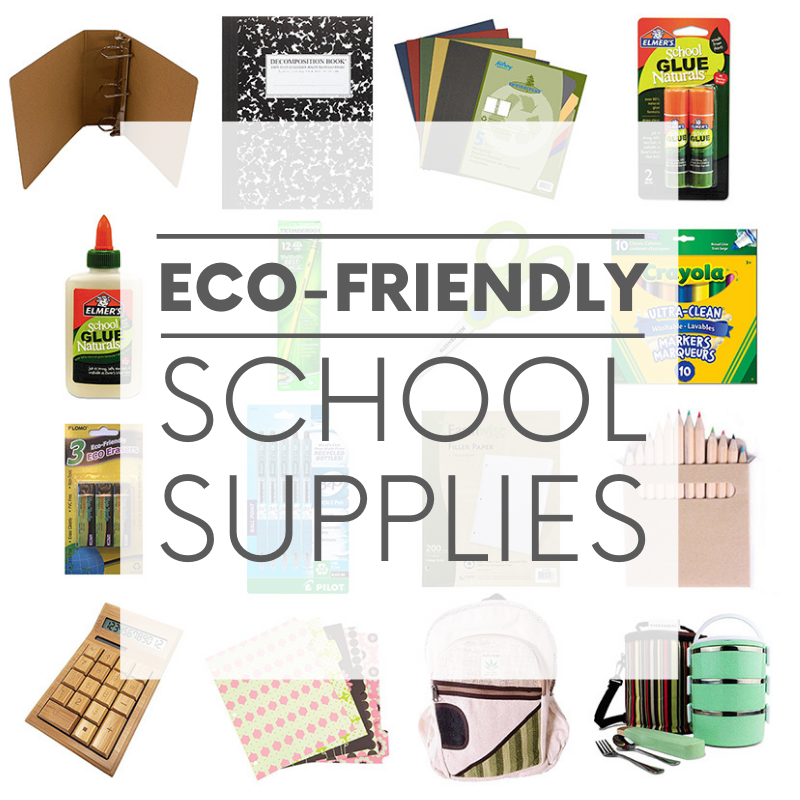Helpful Hints from Gemma Alexander of Earth 911
A few mindful changes can make the return to school a little less burdensome on both your wallet and the planet.
- School supplies can be expensive, especially if you have more than one school-aged child. It’s not exactly environmentally friendly. Unless your child’s teacher has specifically requested it, you probably don’t need to buy crayons, colored pencils, markers, and highlighters for your first grader. Your fifth grader probably doesn’t need a spiral notebook for each subject and a giant binder to hold them all.
- If something seems unnecessary, skip it. And if it turns out to be important later, buy it then. The big back-to-school displays may be gone by September, but office supplies are available year-round.
- You can reuse backpacks and pencil cases from older siblings or trade items among neighbors. The money you save can go towards buying higher quality, longer-lasting versions of the things you must purchase. Or you can put the savings towards the name-brand sneakers or whatever other must-have item “everyone else is getting.”
- Choose reusable over disposable and second-hand or recycled over new and virgin materials. You can find pencils, notebooks, and notepads made from recycled materials; raise the bar on paper products by buying Fair Trade.
- Many school supplies are still made with polyvinyl chloride, which is not widely recycled. Look for PVC-free binders, pencil boxes, and organizers.
- Crayons and colored pencils generate less waste – and fewer fumes – than markers. The Ultimate Green Store sells reusable, recyclable, and nontoxic school supplies ranging from nontoxic glue and recycled pens to upcycled backpacks.
- School Clothes: Back to school is a better time than Christmas to stock up on underwear and socks. And kids might need new shoes after a summer in sandals. But unless a summer growth spurt has made their whole closet obsolete, avoid buying an entirely new wardrobe. Instead, stick with a new outfit for the first day of school, and wait a few weeks to see what they need. Clothing swaps can be fun at any age and make sense for kids either before school starts or a few weeks later when styles have “matured.” Tastes and trends change quickly, especially if friend groups shift in the new school year. And it’s never too soon to introduce kids to sustainable fashion. When new clothes are needed, vintage or thrifted finds and upcycled hand-me-downs are environmentally responsible outlets for self-expression.
- Backpacks: If your school has uniforms, the annual backpack replacement is a significant opportunity for kids’ self-expression. But many branded character backpacks are cheaply made and hard to recycle. Plus, the kid who loves Barbie in September may be begging for something less cringey by Christmas. Instead, opt for a sturdy backpack that will last several years. Many come with multi-year warranties and can be repaired if a strap or zipper breaks. Some companies, like Patagonia, are making a change towards sustainable textiles. Look for backpacks made from natural fibers like hemp or linen. If your child is attached to their favorite character, let them personalize a sturdy bag. Collectible buttons, enamel pins, and cute keychains hanging from zippers can be swapped out as their interests change.
- Less Wasteful Lunch: It’s easy to throw packaged foods into a disposable bag and be done with it. But one year of disposable lunch generates 67 pounds of waste. Reusable containers are helpful when setting up a waste-free lunch system. Choose a reusable lunch box instead of paper bags.
- Send the Kids Back to School With a Message: While you are back-to-school shopping, talk to your kids about your decisions to reduce their school year impact. There’s no reason to insulate them from the environmental impact of their pencils, bags, paper, and other school supplies. They’ll learn a few questions to ask themselves and perhaps avoid falling prey to rampant consumerism. At the very least, they may school their teachers and classmates in sustainable living by their example.

